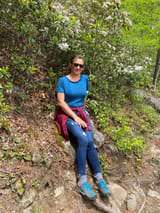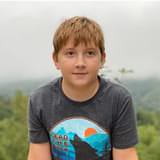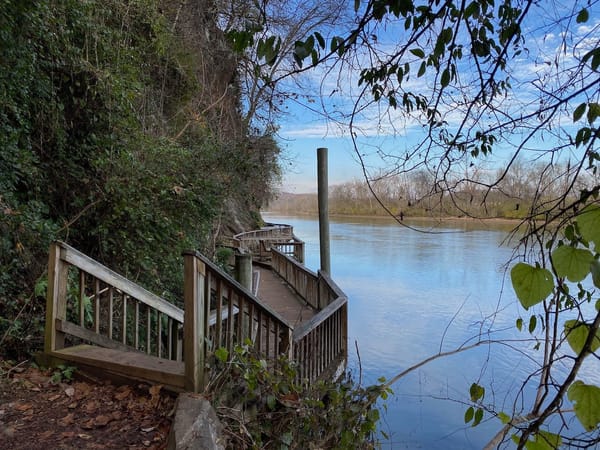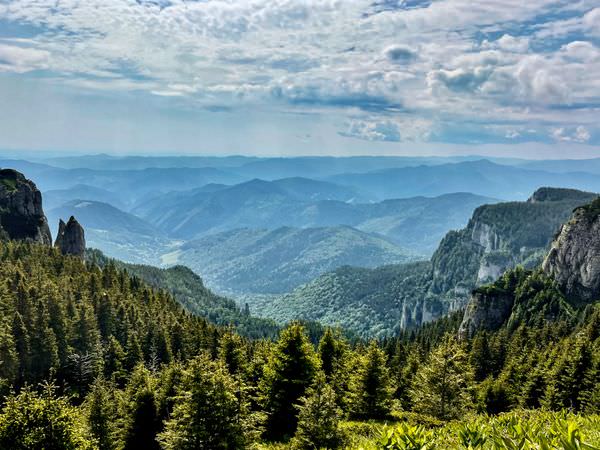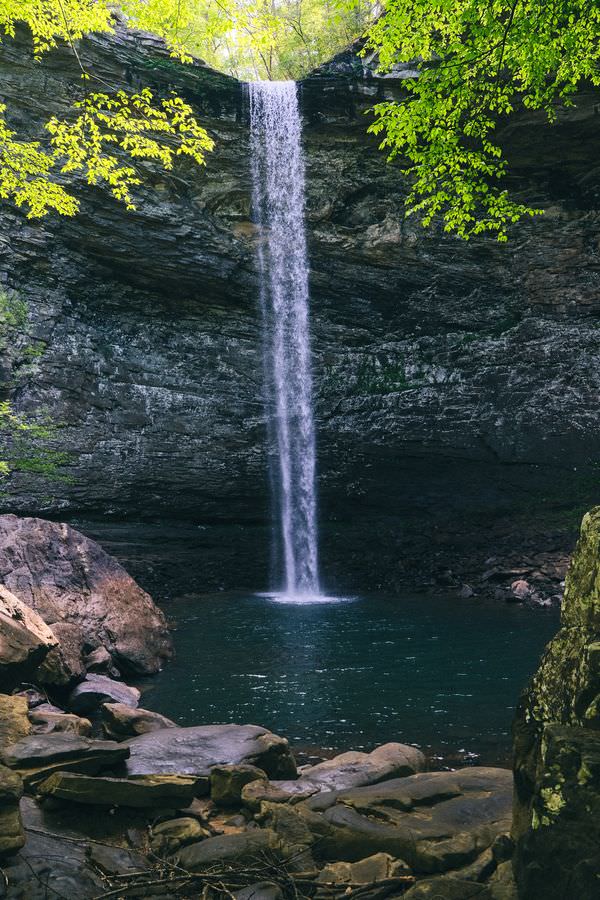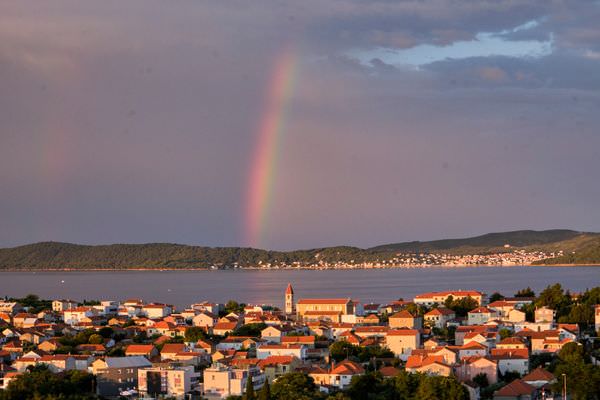The Transfăgărășan
Three first impressions of Anna and her boys, Mihai, 13 and Paul, 10 of the beautiful, scenic Transfăgărășan Road, Sibiu County and Argeș County, Romania and their experience of this trip.
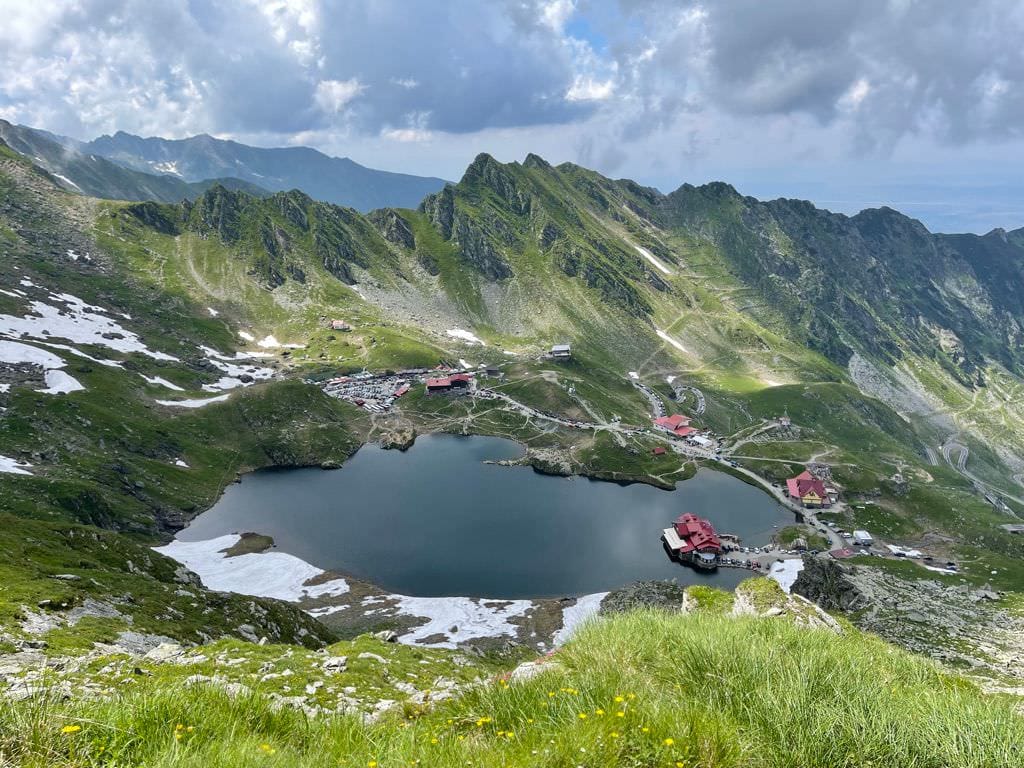
Anna, the Mom
The Transfăgărășan is a national road across the Făgăraș Mountains, the highest mountains in Romania. It starts in the village of Bascov, near Pitești, Argeș County and crosses the moutains to the crossroads of DN1 and Sibiu, Sibiu County between the highest peaks in the country, Moldoveanu (2 544 m/8 346ft) and Negoiu (2 535m/8 317ft).
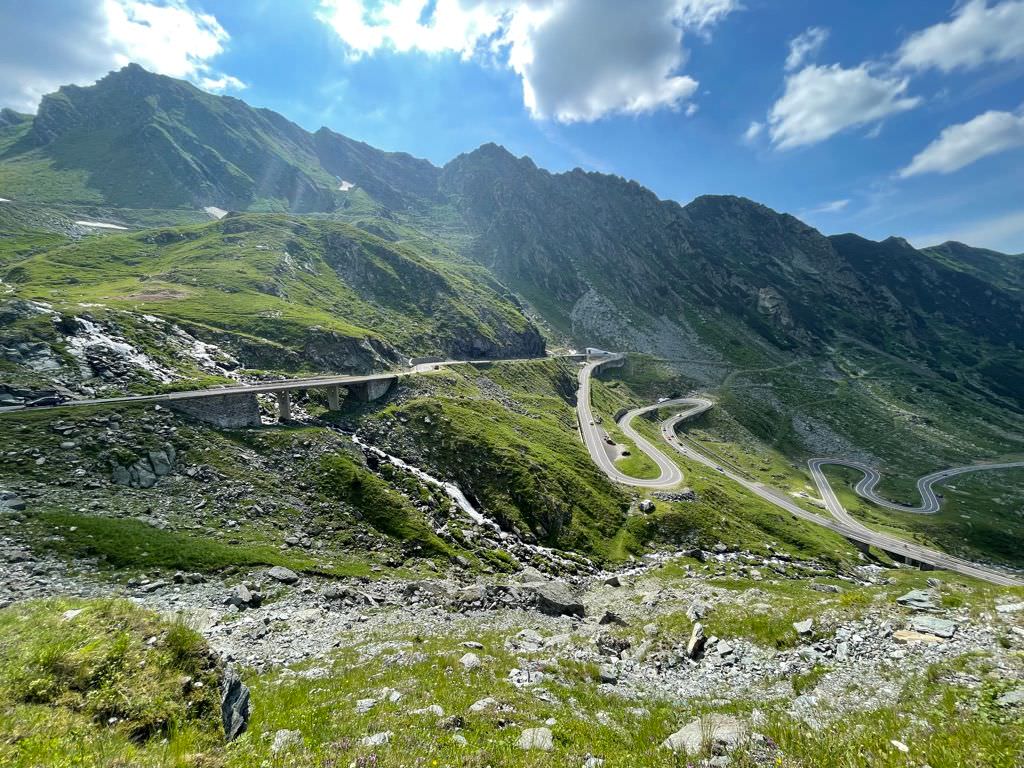
The road was built during Nicolae Ceaușescu's rule, in the early 1970s as a strategic military route connecting the historic regions of Transylvania and Wallachia. As a response to 1968 Soviet invasion of Czechoslovakia, the Transfăgărășan was built to ensure quick access across the mountains of Romanian troops and military operation in case of Russian invasion of Romania.
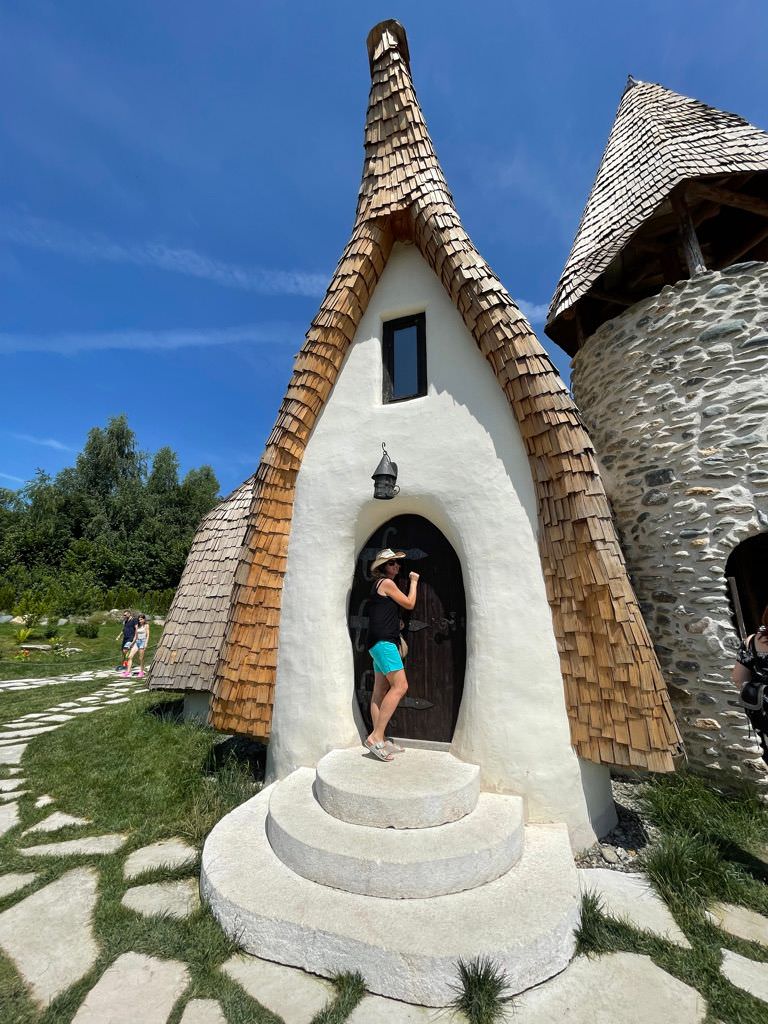
The Transfăgărășan was built mainly by junior military forces thus the human cost, besides the financial one was high. Even though official records state that only 40 soldiers lost their lives it is estimated that the number is much higher, in the hundreds. Work was carried in harsh alpine conditions at high elevations, lots of explosives had been used and the people working at the road were not trained in blasting techniques.
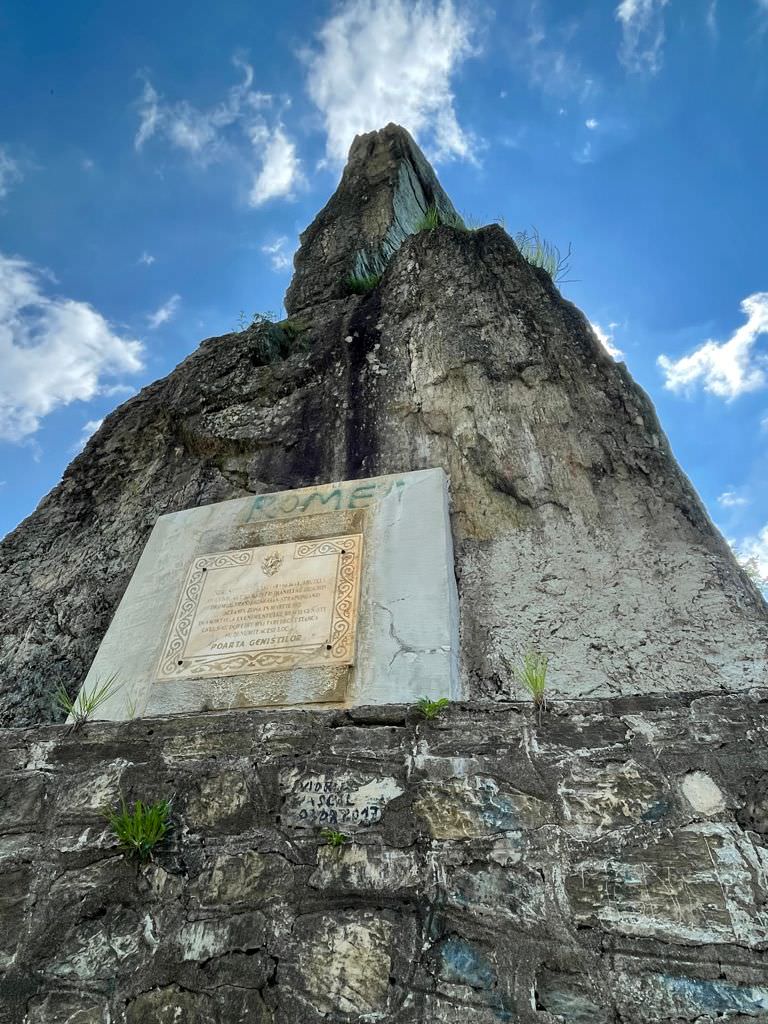
The road climbs to an altitude of 2,042 metres (6,699 ft), making it the second highest mountain pass in Romania after the Transalpina. It is a winding road, very scenic, dotted with very sharp turns, an attraction and challenge to lovers of hiking, to cyclists, drivers and motorcycle enthusiasts.
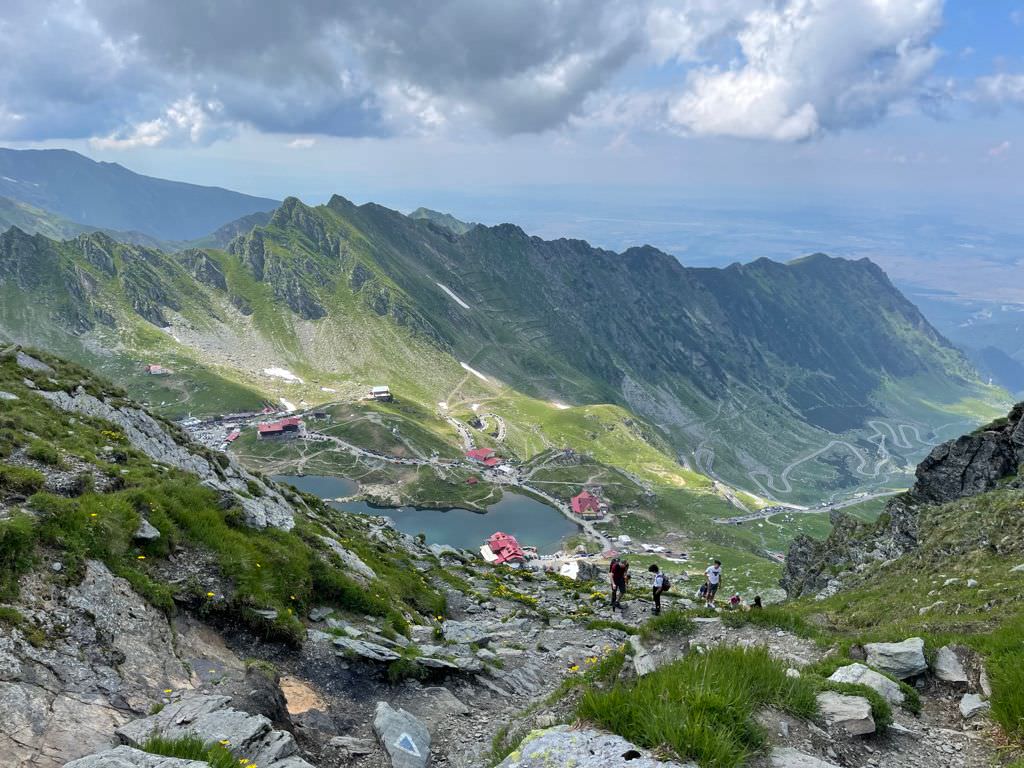
We managed to drive the whole road in a few hours and were amazed by the beauty of the scenery. Coming from Sibiu County, the road is ascending through forests on both sides until the landscape opens up with insanely abrupt stone walls on one side and a chasm on the other side. As we were coming near to the highest point of the Road at Bâlea Lake, we passed by Bâlea Waterfall. Downstream the waterfall, a cable car is available for those who want to see it from above and want to go up on the mountain to Bâlea Lake.
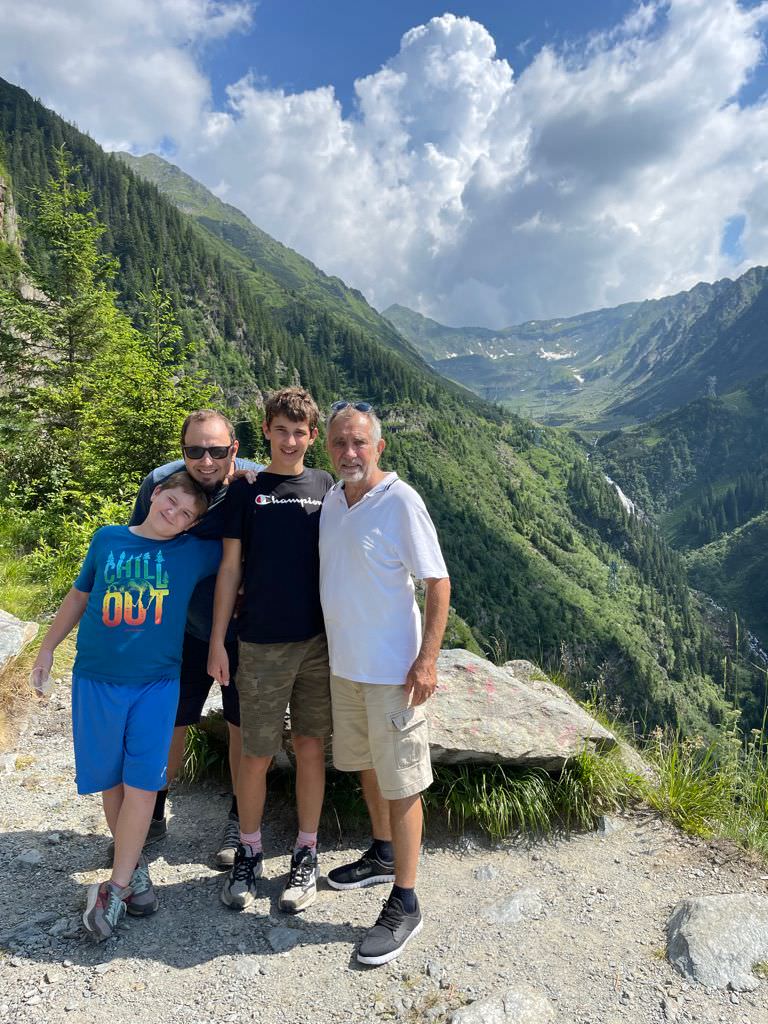
We didn't use the cable car instead we chose to keep on driving on the road. We were't disappointed with our choice as the road is just so impressive. Above the waterfall the scenery becomes majestic. The mountains, like tall sentinels stand on both sides as the road starts winding higher and higher in the valley. The craggy tops testify to cataclysmic forces that ripped the crust of the earth and raised it giving the landscape the aspect of a cauldron that must have held a large amount of water once.
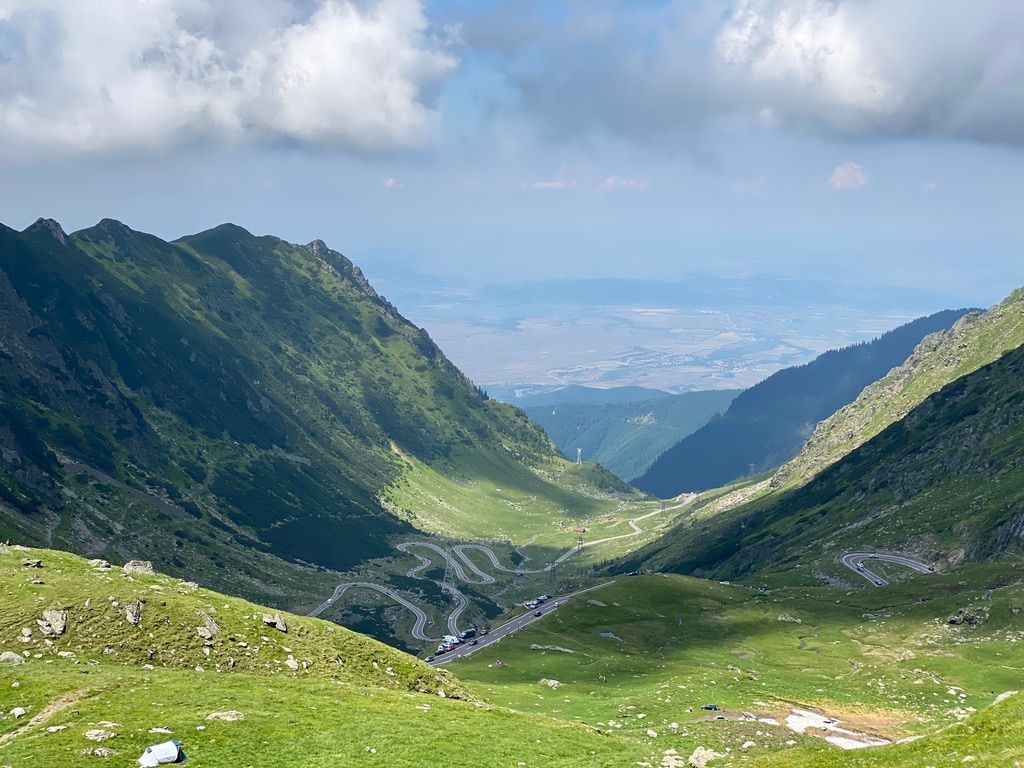
On the way up we could stop on the side of the road and just take in the surrounding view, the streams of water that seemed to spring down from everywhere, the sight of the flocks grazing the alpine meadows on the slope of the mountain, and enjoy short conversations with fellow tourists stopped to admire the beauty around them.
When we got up to Bâlea Lake we decided to keep on going as it was getting late and the place was very crowded. We crossed the Bâlea Tunnel which has a pedestrian sidewalk inside as people are parking their cars on both sides of the tunnel in order to get to the most beautiful glacier lake in Romania, Bâlea Lake.
On the other side of the tunnel, although the road becomes a little worse, (different county, different road management) the landscape is just mind blowing. Tall mountains, sprawling waterfalls by the side of the road, cold springs from which people fill their water bottles, vendors selling homemade smoked cow, buffalo and sheep cheese and meats, people setting up their camping tents or having a picnic or just sitting down on the soft grass speckled with rhododendrons, wild thyme, buttercups and a myriad of other wild flowers. The road keeps winding down in S turns towards the feet of the mountains.
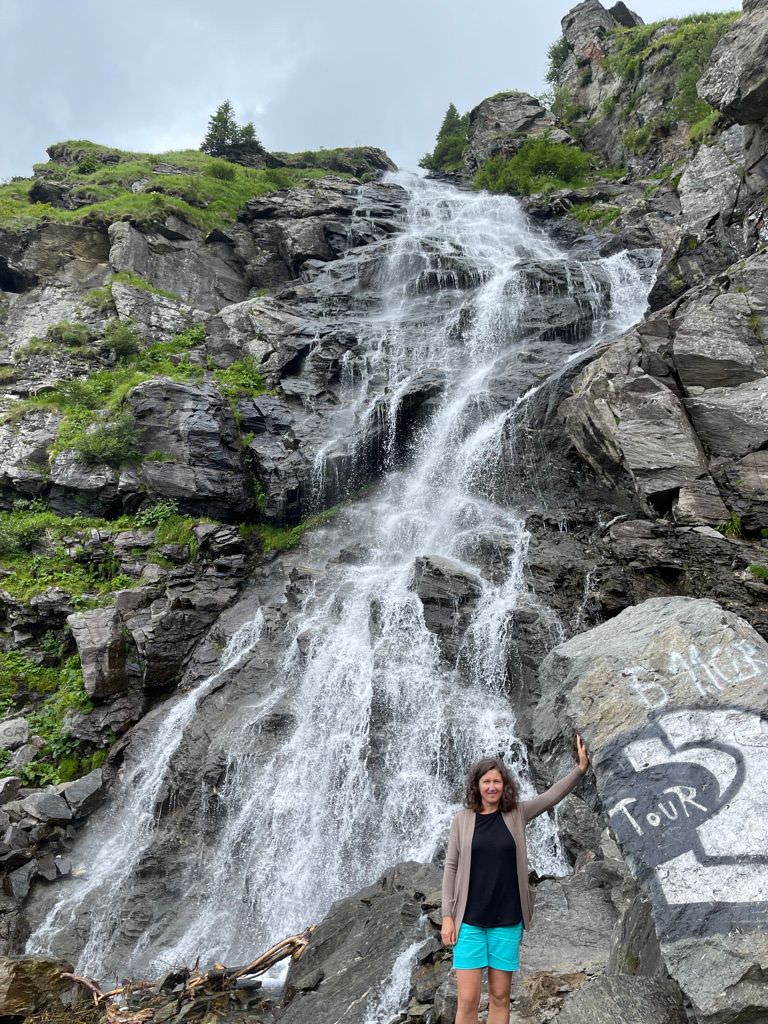
While on the mountain we received some warnings that on the road towards the Vidraru Dam we might encounter bears on the side of the road. Sure enough we met them begging for food. We saw people stopping next to them and throwing them their sandwiches. We felt sad to see such beautiful creatures waiting to be fed instead of roaming for food in the forests.
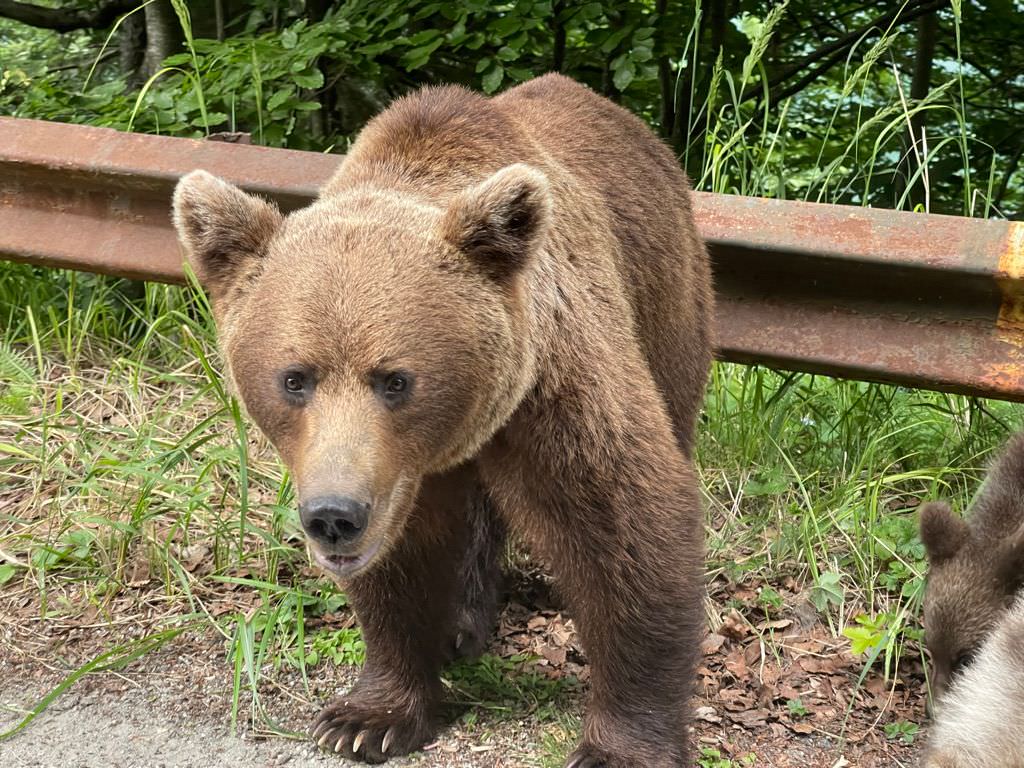
On the way to the inn we passed on the Vidraru Dam, a huge, impressive construction next to a very large artificial lake. We stopped to check out the place and we felt our feet melting looking down in the deep abyss created by men to control the water in the lake.
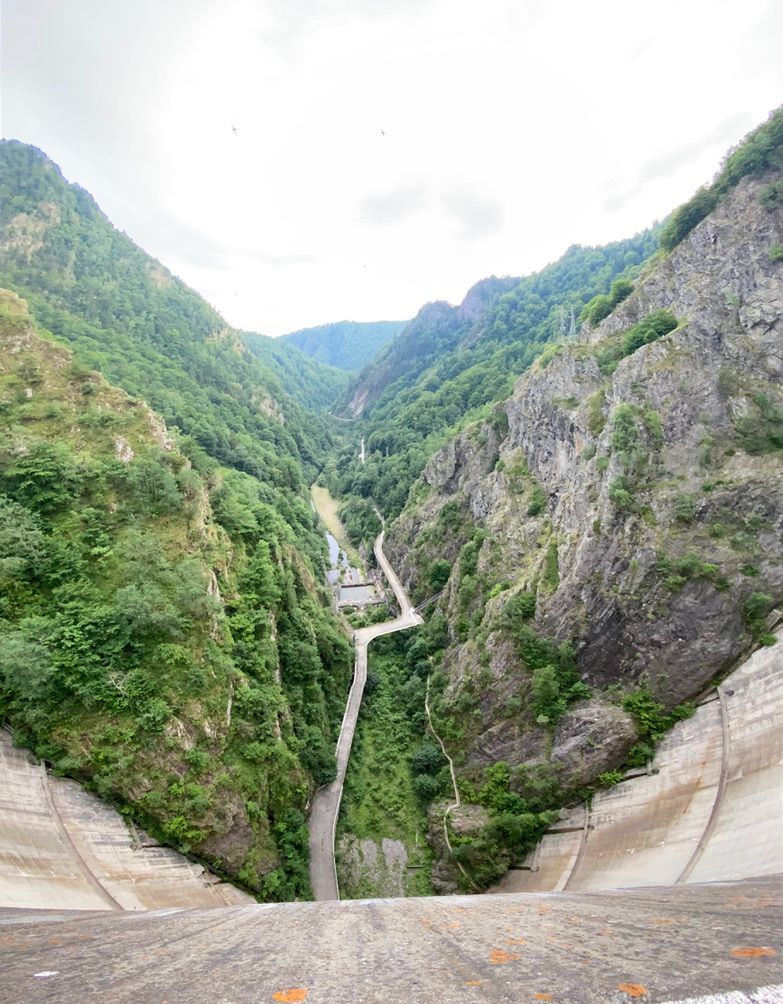
The next day, on a Sunday we came back to Bâlea Lake hoping to find a parking spot in the parking lot. But no success! The place was packed. After we waited for about 15 minutes to cross the traffic jam in the tunnel, we managed to find some space further down the road where other people have parked their cars on the side of the road.
We were a bit annoyed with not finding a proper parking spot but soon the annoyance gave way to sheer joy and amazement as we hiked around Bâlea Lake and on to Șaua Caprei to see another glacier lake on the other side of the mountain. The hike looked impossible from far but as we approached the trail it looked quite accessible and there were many ways by which you can go. As we started the ascend it didn't feel so bad. It was a bit steep but from time to time we stopped to admire the lake from above, some people skiing on the patches of snow that didn't melt yet next to the lake and the road winding down towards Bâlea Waterfall. It is just an amazing sight to behold, it cannot be described in words, words just fall short.
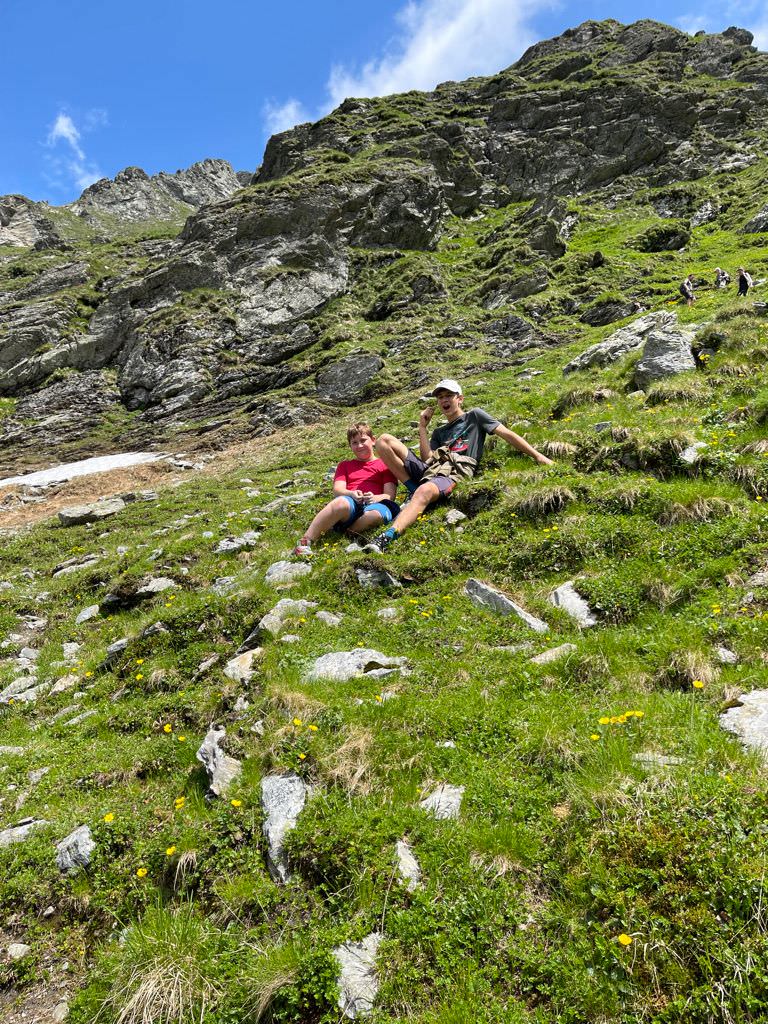
When we got on the pass between the two slopes of the mountain called Șaua Caprei (Goat's Saddle) we rested on the small, soft tufts of grass. It feels like one is very close to heaven there, in that magical landscape. We were blessed enough to "accidentally" stumble upon the rhododendron season. Huge patches of purple adorn the slopes of the mountains guarding Capra (Goat's) Lake a smaller glacier lake on the other side of Șaua Caprei.
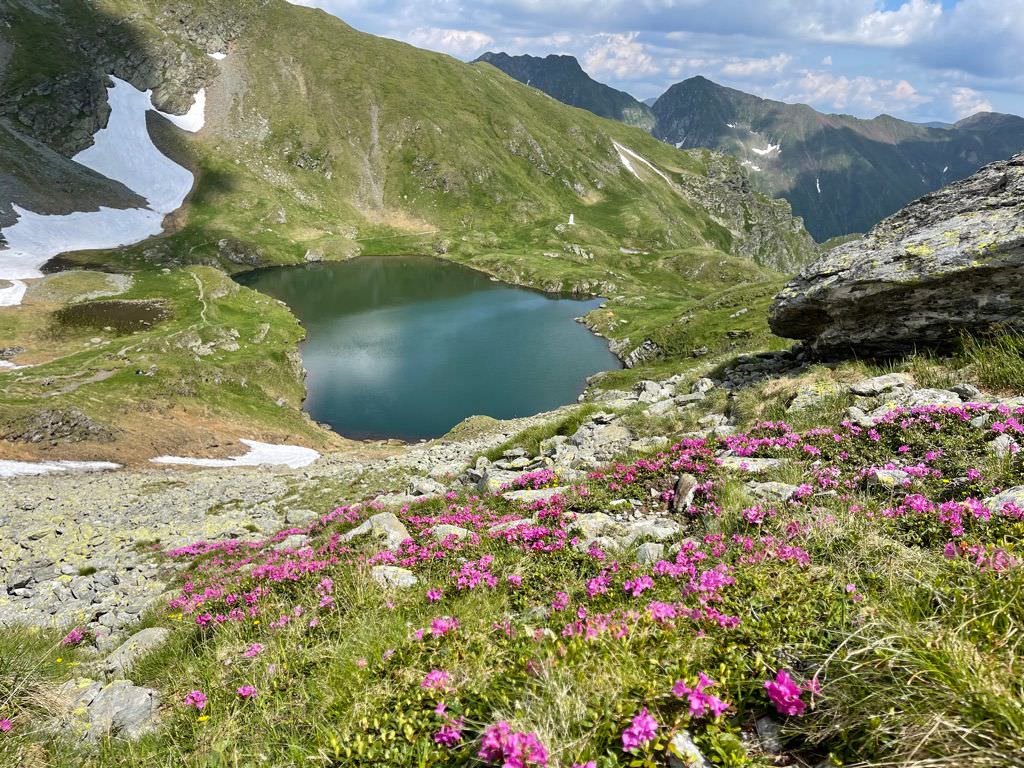
Needless to say that the experience of Transfăgărășan was amazing. We definitely want to go there again whenever it is possible, as many times as possible.
Tranfăgărășan for me is:
The craggy, spectacular mountain tops of Făgăraș Mountains guarding the road on both sides;
The still calm of Bâlea and Capra Lakes mirroring majestic clouds rushing among rugged peeks;
Purple patches of rhododendron stretching high and low;
The smoke trapped inside morsels of aged cheese;
The fresh, clean air and the soft grass on top of Șaua Caprei;
The cold water of Capra Waterfall spraying my flushed face;
Spontaneous conversations with the fellow hikers sparked by the magic of the mountain;
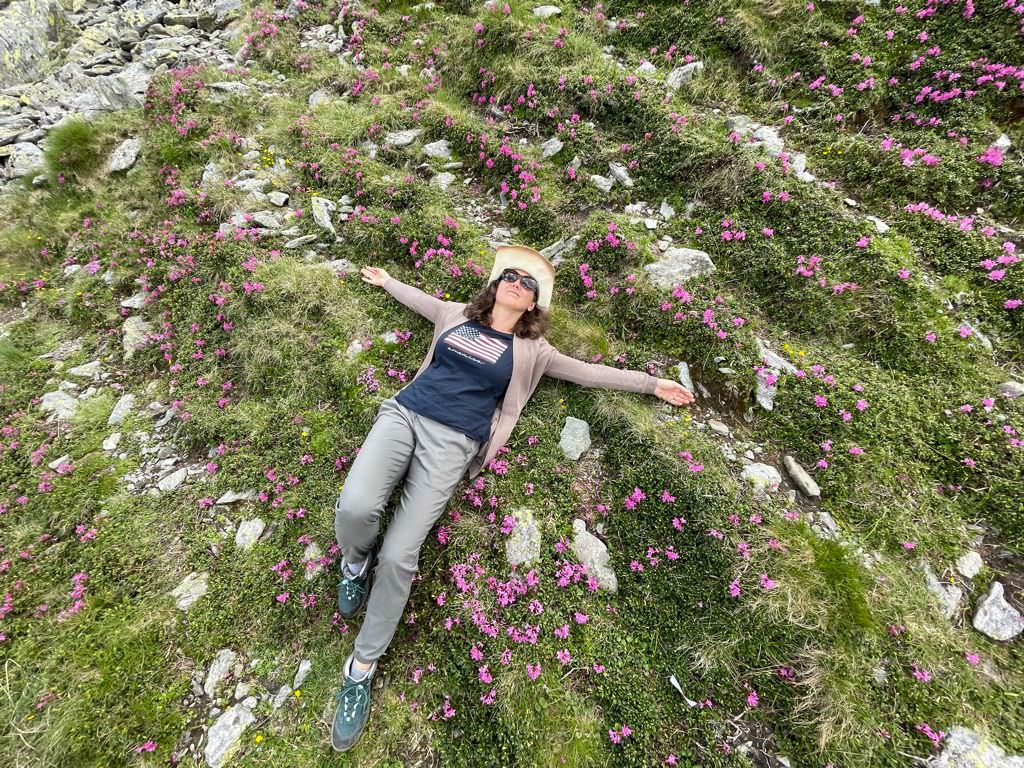
Mihai, 13
The Transfagarasan, the famous Romanian road through the Fagaras Mountains is three hours away from Cluj, where we live. When we got there, we found out why it is so dangerous to fast drivers. The road was full of sharp turns and on one side were gigantic cliffs, which led into deep valleys full of trees.
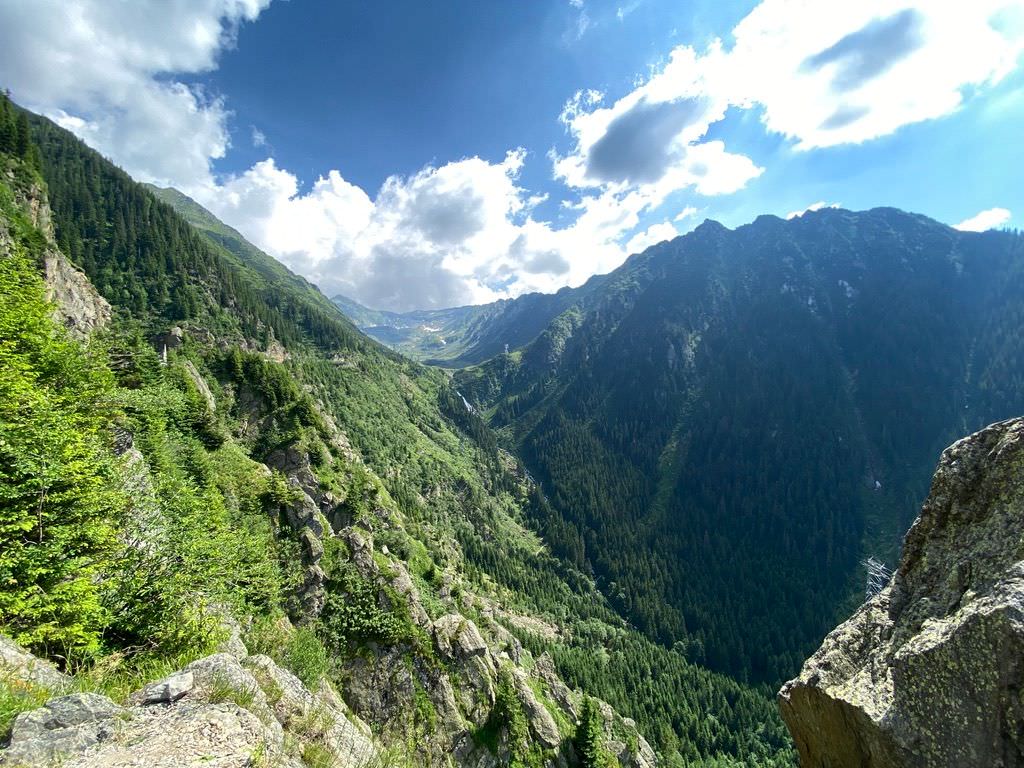
Soon, we got to another area with fewer falls of death and more sharp turns which led to a cabin near Balea Lake. We did not stop here but continued on our road to the inn we were staying at and came back the next day.
After we drove past the Balea Lake cabin, we entered a long tunnel that goes through the mountain. This tunnel led to some wider turns and some cheese vendors. We had to buy some smoked cheese, and it was very good. Farther down the road, we came to a spectacular waterfall.
On our way to the inn we crossed a giant dam and we got out of the car to see the behemoth structure. It was way bigger than the Hoover Dam, and it was extremely scary to look down in the valley that was made by the dam.
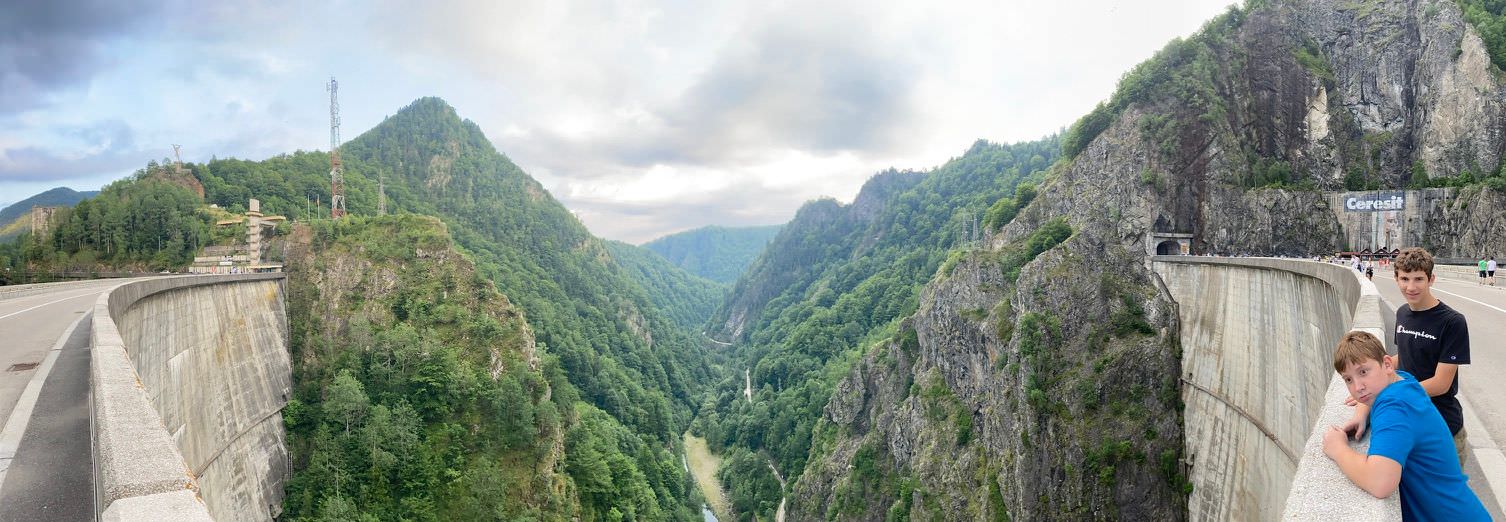
The next day, we started going back home.
After visiting Poienari Castle, we eventually got to Balea Lake again. We stopped at the cabin and my grandpa had an amazing idea. His idea was to climb to the top of a huge mountain pass called the Goat's Saddle (weird name, but it sounds better in Romanian).
After a long climb, we finally reached the top, and from there we could see all the curves of the road leading to the cabin. On the other side of the mountain, we could see another glacier lake, Goat's Lake .
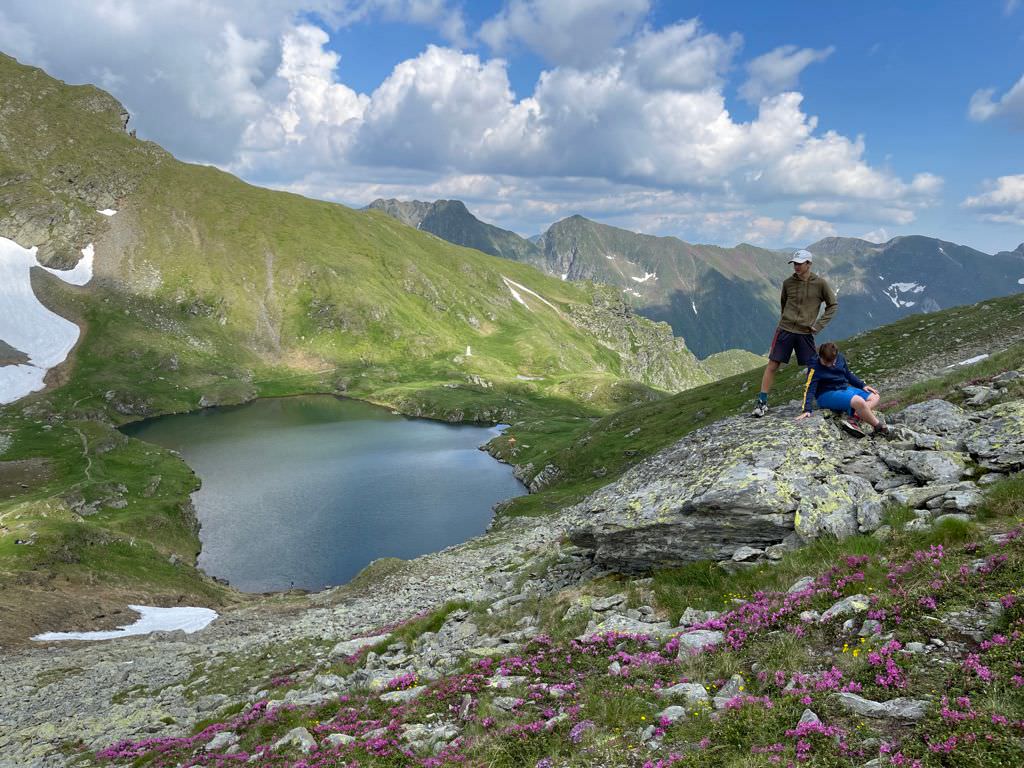
The Transfagarasan is:
The view of the road from the top of the Goat's Saddle;
The smell and taste of warm funnel cake;
The sound of a rock falling on the trail;
The soft grass on top of the Goat's Saddle;
I would come back to hike some different mountains.
Paul, 10
We got into the car at exactly nine in the morning ready to go on an adventure.
On the way to our inn, we drove on a long road named the Transfagarasan, it was very scary because it went on top the mountains and there was a pit on the left side of the road!
Once or twice we stopped along the road to appreciate the beauty of the giant Fagaras Mountains.
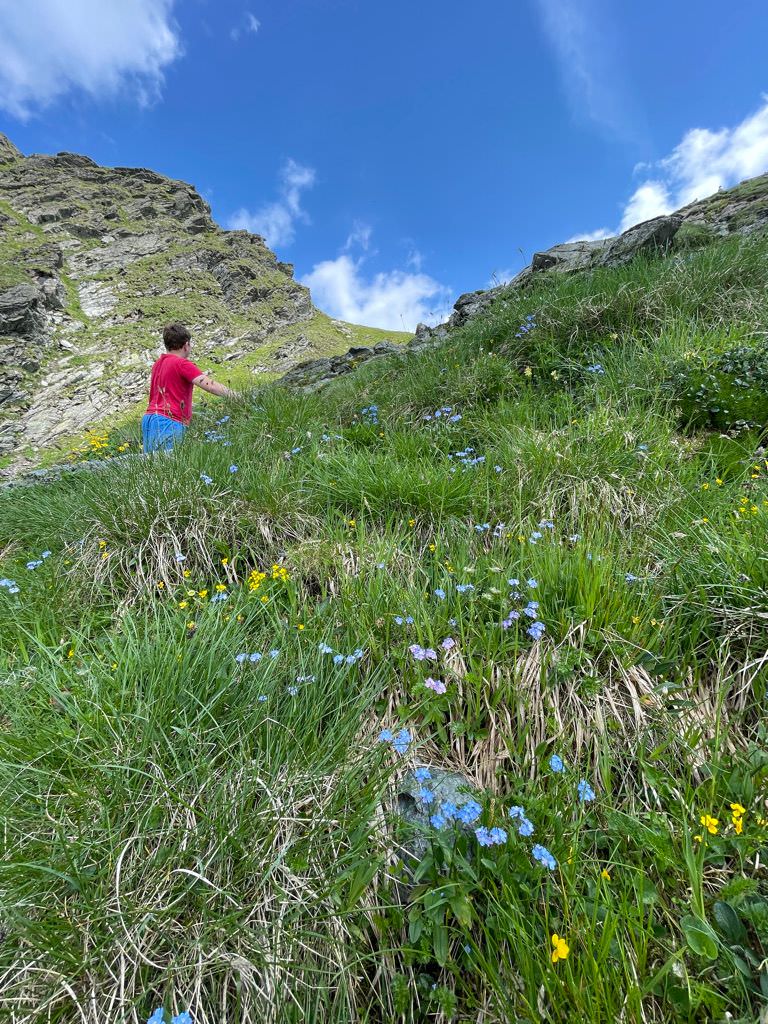
While we were on the road we stopped to go on a hike. The hike was on top of a mountain! It took roughly 2 hours but the view was game-changing. One thing that made the experience nicer was a field of rhododendrons to greet us on the top of the mountain.
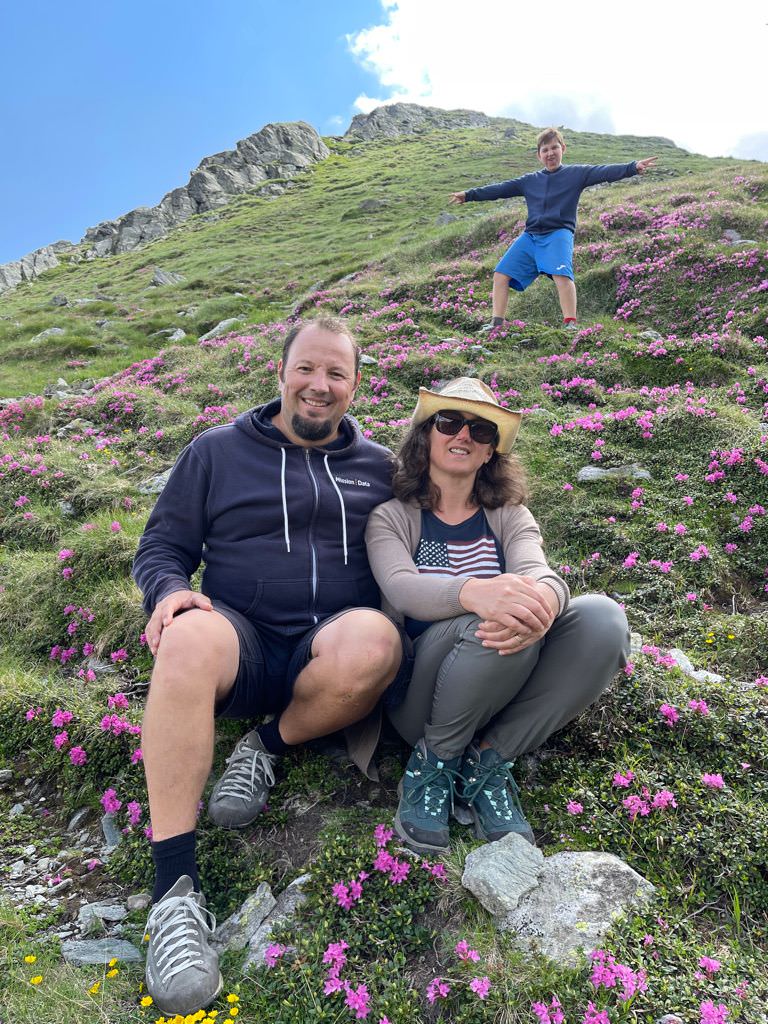
I would go again to see those nice little purple flowers.
The Transfagarasan is for me:
The smell of the nice rhododendron flowers;
The sight of the giant mountains;
The taste of corn on the cob after having done a great effort;
The sound of my family saying "cheese" to the camera;
The fear of falling off the top of the mountain and starting an avalanche.

